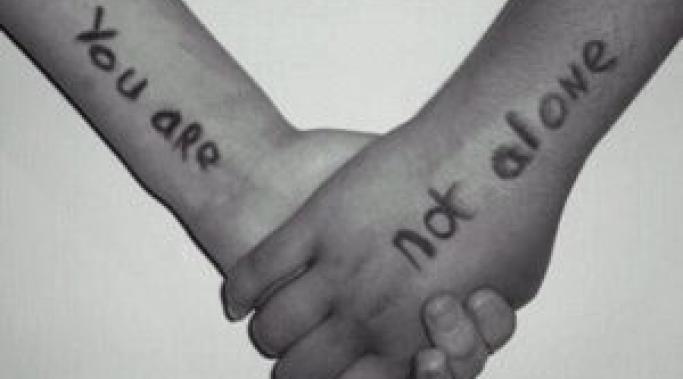Blogs
Forming healthy relationships isn't easy in mental illness recovery when I'm experiencing symptoms of my bipolar disorder because I'm known to behave badly. Well, not necessarily badly per se, but differently than I'd behave if I were completely healthy. At times, my behavior affects myself and at other times it affects forming healthy relationships with the people around me. These relationship mistakes have sometimes caused me to lose friends and alienate acquaintances. But when I work towards forming healthy relationships during mental illness recovery, it leads to greater understanding and better connections (Why Healthy Relationships Matter).
Mental health stigma teaches us that mental illnesses are rare, that only a few people have them, and that we should feel alone if we are one of those few. Stigma subtly teaches us to question the commonality of our mental illness.
When people come forward saying they have mental health issues, one of the automatic, and unfortunate, assumptions is the person must be doing it for attention. I'll also add it's true that it's hard to say how many misdiagnoses there are; however, the fact of the matter is mental illnesses are not rare.
Fad dieting is not healthy for anyone, but when you have binge eating disorder, fad dieting can be a symptom of your binge eating disorder and do serious damage to your mind and body. Almost everyone in the United States, at some point, has been on a fad diet. They are so ubiquitous in popular culture that very few have escaped the allure of the quick-fix fad diet, especially those with binge eating disorder.
Generalized anxiety disorder (GAD) often slows you down; and when it does, it can be maddening and stressful. Anxiety can make people feel as though they're tarred and feathered, slowed down from real progress by a thick coat of heavy, gooey tar and coated in anxiety, represented by feathers. When generalized anxiety disorder slows you down, you don't have to give up. You can move forward.
Sleep deprivation can be a real danger to those of us with anxiety disorders, especially in the long term. Chronic lack of sleep has been linked to everything from poor concentration and being more prone to accidents, diabetes, heart disease, and early mortality. The irony is that mood disorders, like anxiety, increase sleep deprivation, which, in turn, increases anxiety. Here is some important information about the dangers of anxiety-related sleep deprivation, and some steps you can take to increase the quality of your sleep.
Mothering with an invisible mental illness is challenging. I know you couldn’t see my mental illness when you were sitting next to me at “back to school” night. You couldn't see the bipolar medications I swallow twice a day or the 14 years of therapy that have equipped me to behave so normally. You can’t see my bipolar 1 disorder, but sometimes I wish you could. I'm mothering with an invisible mental illness.
Undiagnosed trauma can lead to substance abuse, and unfortunately, it happens too often. Trauma affects our brains and our lives in ways we can't imagine. From the isolating devastation of a loved one’s suicide to the shared grief of a population under attack, trauma touches our lives in myriad ways, with each experience exacting a unique toll on those affected.
One of the problems some undiagnosed trauma sufferers experience is substance abuse. People with undiagnosed trauma may turn to substance abuse to soothe their troubled minds. Why is this?
Hi, my name is Julia Banim and I’m the new co-author of Anxiety-Schmanxiety. I’m a journalist based in Manchester, England. Reading and writing have long been a quiet refuge for me from the social situations that, admittedly, have never come too easily (What Is Social Anxiety Disorder [Social Phobia]?). Journalism, therefore, always felt like a natural career path for me.
I believe that writers should always strive to cover issues that are of personal significance to them. For me, this is anxiety, with all its messiness, humiliations and excessive worrying. I know how it feels to be wound tight as a spring for days, weeks, or months on end. I know how it feels to not realise how loud and fast you are breathing, how tightly you are clenching your fists, until the person next to you on the train looks at you with concern (Can People Without a Mental Illness Understand Us?).
Identifying your good qualities can be challenging when you believe you’re worthless or have low self-esteem. When you’re feeling worthless, your negative thoughts distort your perception of yourself and you overlook the positives. However, they’re not the truth even though you might believe it. No matter who you are, you are not worthless and you do have good qualities. Identifying your good qualities even if you feel worthless can help guide you to the things you’re suited to, find meaning or purpose in your life, and most importantly, to see your own worth so you can build your self-esteem.
Fall has always been my favorite season because I love all of the fun, fall activities. For a while I worried that fall might be a season full of triggers (Pushing Aside Daily Mental Health Triggers Is Tough). In September of 2005 I spent a week in inpatient treatment after my bipolar diagnosis. I worried that fall wouldn’t be as festive or fun for me anymore and that it might instead be a reminder of the trials I faced with my diagnosis. But I have found bliss though fun, fall activities.









